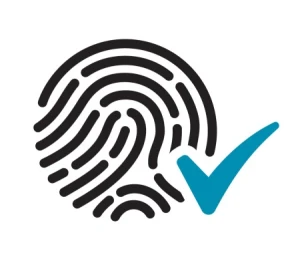
The ever-growing salience of environmental, social, and governance has changed the way of deal-making. Whether companies are willing to accept it or not, in the current economic climate, it is more expensive to be anti-ESG than it is to move with the masses.
In a recent article, PwC identified orange flags for dealmakers that signal when to “proceed with caution” regarding ESG and deal-making. These flags were unethical marketing, reputational risks, high risks in supply chains, disengaged employees, the transformative deal that isn’t, and inadequate nonfinancial disclosures. To read the complete PwC article, click here.
Oritain has identified several actions to minimize the risk of 3 of the 6 flags: unethical marketing, reputational risks, and high risk in supply chains, allowing companies to position themselves as more attractive to investors.
High risk in supply chains
Map your supply chain
Mapping out your company’s supply chain allows for a greater understanding of the different partners, inputs, and outputs at each stage in the supply chain. This creates an opportunity to identify points of weakness in the supply chain and potential supply chain risks. Recognizing these risks identifies gaps for processes to be put in place to minimize ESG risk.
Minimizing this risk could mean working with partners to ensure better working conditions, fairer pay, and lower carbon emissions. Or it might look like identifying areas of the supply chain where a potential partnership change may be necessary to ensure ESG goals are adequately met.
Origin Verification
Companies must know where their product has come from to ensure that ESG risks are sufficiently managed. Product origin verification plays a significant role in minimizing supply chain risk. Origin verification uses forensic and data science to enable leading brands to prove the origin of their products and whether they’re sourced ethically and responsibly.
Reputational risks
Undertake due diligence
Take reasonable care before entering into partnerships with suppliers by ensuring adequate due diligence has been undertaken. Due diligence should assure you that the supplier you are working with has traceability methods to mitigate ESG risks. This could come in the form of only partnering with suppliers verifying the origin of their products using an independent third party.
Verify claims
Product fraud and unethical practices in the supply chain erode brands' integrity and cost industries billions of dollars annually. Companies able to prove the authenticity and quality of their products will gain a competitive advantage, ensuring long-term business by preserving the environment, mitigating product risks, lowering risks for investors, directors, and officers, showing progression and innovation, enhancing their brand and communications, and demonstrating to clients and civil society that they adhere to ethical standards. By backing up claims with verified forensic science, companies can minimize reputational risk.
Unethical marketing
Back up claims with evidence
In a climate of diminishing consumer trust due to “greenwashing,” it is more important than ever for brands to back claims up with verification. Trust takes years to build but seconds to destroy, and with 2/3 of adults believing that once brand trust is lost, it cannot be restored (Adobe), the importance of verifying claims is more significant than ever. Using science to verify claims helps to protect brands’ reputations and minimize risks.
Create guidelines
Establish fidelity among all areas of your company to ensure all staff and shareholders understand clear messaging. These guidelines should include information on relevant regulations and compliance, the corporate tone of voice, systems of processes, and other methods to ensure consistent messaging quality.
With the ever-evolving social and political environment rapidly shifting towards double materiality with greater importance placed on ESG, companies should take action to get ahead of the curve or risk falling behind. For those who have been doing the right thing, this shift is an opportunity to be recognized; for those without reliable traceability methods, it is an opportunity to invest in ways to ensure a future-proof operation strategy benefiting all stakeholders involved.
Oritain’s world-leading forensic science and data can be used at any point in the supply chain to uncover whether a product is authentic or fraudulent.
If proving the legitimacy of your products is essential to your brand, talk to us.
Disclaimer: The information provided in this document does not and is not intended to constitute legal advice. Instead, all information presented here is for general informational purposes only. Counsel should be consulted with respect to any particular legal situation.




